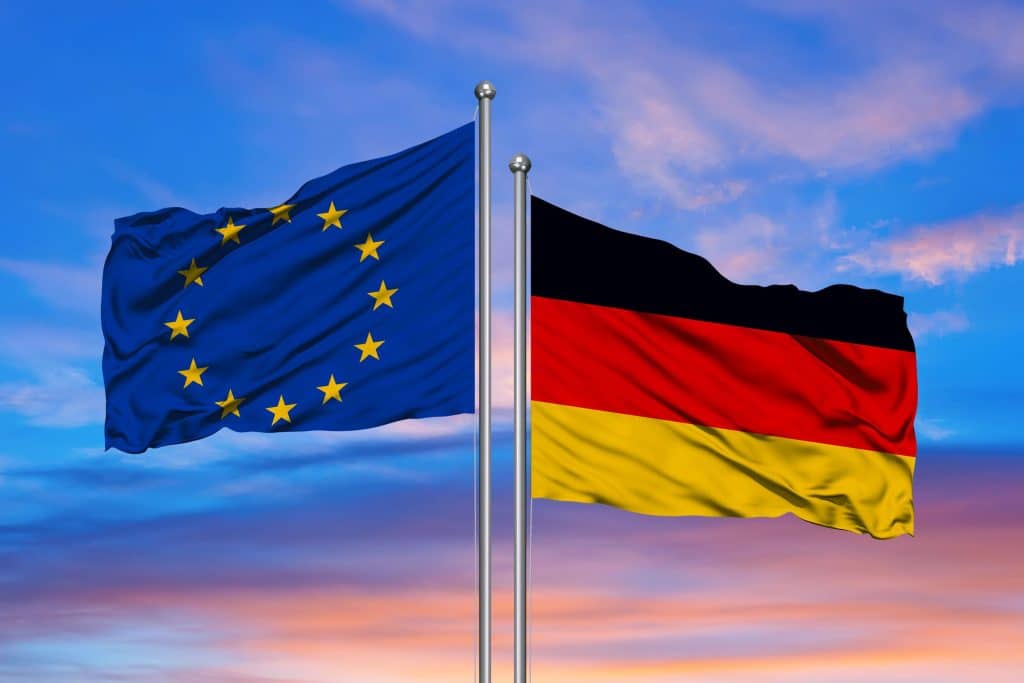Germany is in hyperdrive of late. Not only does the country have the biggest cannabis market in Europe currently (all medical), but it’s seeking to open the first recreational market in Europe as well. On the heels of this newer weed acceptance, Germany is also turning its attention towards psychedelics, with a new government-funded study into magic mushrooms.
German government funds magic mushroom study
Technically it’s not new news, but it’s gotten more attention of late, especially with Germany’s other moves on the weed front. In 2021, the ‘Efficacy and safety of psilocybin in treatment-resistant major Depression’ study commenced, and is carried out by the Central Institute for Mental Health (CIMH), Mannheim. The study has a second center and partner site at the Clinic for Psychiatry and Psychotherapy at the Charité Berlin Campus Mitte.
What makes this a news story now, is that the study just received a round of additional funding by the Federal Ministry of Education and Research in conjunction with the MIND Foundation. Additional funding brings the total funding amount to just under €5 million. The main site is set to receive €2.3 million, and the second site, €300,000 in the additional funding.
One point of investigation is in finding biomarkers which can show who will respond positively to mushrooms and psychedelic treatments, and in what ways. According to Dr Gerhard Gründer, who is the Professor of Psychiatry and Head of the Molecular Neuroimaging Department at the Central Institute of Mental Health:
Thanks for heading over. Check out the Cannadelics Weekly Newsletter, for updates to your email, and for access to awesome promotions on cannabis flowers, vapes, edibles, smoking devices, cannabinoid compounds (including HHC), and a huge selection more. Life is short: get stoned!
“This takes account of the fact that psychedelic-assisted psychotherapy is one of the most important – and perhaps the most important – current developments in psychiatry… The German government has recognized that people’s mental health is one of the most important challenges of our time and that Germany must take a leading role in the development of these therapies in Europe.”
Currently, magic mushrooms are illegal for possession, sale, and transport in Germany. The spores are likewise illegal, although they are legal for microscopy. Technically, the mushrooms are illegal for the purpose of intoxication, but realistically, that’s what people use mushrooms for. Getting caught with mushrooms can mean up to five years in prison and/or a fine.
What does the study look like?
The study is designed to test a high/therapeutic dose of psilocybin, against a low dose, and a placebo. Researchers are looking to establish if psilocybin works as a better antidepressant than a placebo, and what dose elicits the most useful response. They’re also testing if multiple dosing is more effective than single dosing.
The study follows in line with the psychedelic-assisted therapy model. First, participants are administered three preparation sessions. Then the psilocybin treatment is given in two separate test sessions lasting eight hours each. The higher dose given is 25mg, the lower dose is 5mg. Those who don’t receive psilocybin, receive the placebo.
Following the test sessions, participants are administered two integration sessions, the first one a day after the test session, the second, a week after. While preparation sessions are meant to learn about the participant and get them acquainted with the doctor leading the test session (when either the psilocybin or placebo is given), the integration sessions are meant to help the participant understand the experience they just had.
There is an assumption by model design, that all participants will receive psilocybin, at least once. According to the CIMH, “Part of the study group will receive psilocybin in two sessions, while the rest of the group will receive one placebo and one psilocybin.”

Germany: weed and psychedelics
Germany isn’t new to psychedelics, even if it doesn’t currently allow a large selection. Germany is the home of Merck Pharmaceutical, the company that was first to synthesize MDMA back in 1912. And the country allowed the continued research into LSD for years after it was banned elsewhere in the world. It allowed such research up until the early 90’s, and had been a research center for the drug through the 50s and 60s. Germany allows ketamine in off-label use for psychological disorders (same loophole as the US), and is where esketamine was first synthesized.
Says Director of the MIND Foundation Dr Henrik Jungaberle to Psychedelic Health: “The German government was the first leading Western nation that provided a grant for a large clinical study with psychedelics. Now the government has confirmed its commitment to the new field by doubling the budget for this methodically advanced study. This is a relief and support for the research team and medicine as a whole. It helps to counter stigmatization and supports implementation of psychedelic therapies.”
When it comes to cannabis, Germany has also taken a leading role, at least in Europe. Though it’s not the first European country to pass some kind of legalization, and though no official bill has been released, the country stated in April via Justice Minister Marco Buschmann that a cannabis legalization measure was under construction. At the time, not much else was said, except that a more official plan would be released later in the year.
And it was. On October 19th, the government released a set of possible reforms to RND newspaper group, as reported by Politico. One of the main points was the declassification of cannabis from a narcotic substance. The new draft rules cover different aspects of basic regulation, including age for purchase (18), maximum possession amount (20 grams), maximum THC percentage (15%), and a host of other sales, building, marketing, and other requirements.
What about the EU?
One of the reasons this draft legislation was never officially put out there, is that Germany has a bit of a conundrum. Though the country wants to legalize cannabis and open an adult-use sales market, it’s a part of a bigger federal body, the EU, which technically must approve. As there isn’t anything written on what happens in this scenario, it comes down to the EU Federal Commission (executive branch) to decide if Germany should be able to do this.
This makes sense on several levels, as the EU, which Germany is a member state of, has signed documents with the rest of the world which are in agreement to ban and prevent commercial activities related to illicit drugs. Should it be decided by the EU Commission that Germany’s move is non-compliant with current EU law, the EU can then begin an infringement procedure against the country. This is along with whatever other lawsuits are waged against the country for such a move.

But does Germany absolutely have to wait for approval? Well, that’s the conundrum, as many lawmakers in the country are urging Health Minister Karl Lauterbach to forego waiting for EU approval and just officially present the bill. He already did present it privately to the federal cabinet in November. Lauterbach, as of yet, has held back from doing so, showing a desire to wait for EU approval; but this could change with mounting pressure from within.
When looking to psychedelics – specifically magic mushrooms, the laws are actually a bit looser, partly because the Convention on Psychotropic Substances from 1971 doesn’t rule out the plant, only the compounds within, making for a magic mushroom loophole. This loophole was backed up in 2001 when a member of the International Narcotics Control Board, responded to the Dutch Ministry of Health with this:
“As a matter of international law, no plants (natural material) containing psilocine and psilocybin are at present controlled under the Convention on Psychotropic Substances of 1971. Consequently, preparations made of these plants are not under international control and, therefore, not subject of the articles of the 1971 Convention.”
This doesn’t mean any country must allow the mushrooms, as individual countries set their own laws. But it does open a door in terms of this hole in global mandate. It remains unclear for now what happens if Germany eventually wants to set up a medical mushrooms/psilocybin products market. Of course, that idea is still far off in the wind, and the country is currently focused on learning as much as it can from the government-funded trials.
Conclusion
Germany is sure on a trajectory; working to legalize cannabis, and now putting money into researching psychedelics with magic mushrooms trials. Who knows, Germany might boast the first cannabis sales market in the EU, along with the first medical magic mushrooms market. We’ll have to wait and see.
Hello! Great that you found your way to Cannadelics.com; a publication where we work hard every day to get you the best cannabis and psychedelics reporting from the industry. Chill with us regularly to keep up with the beat, and subscribe to the Cannadelics Weekly Newsletter, so you’re always first to get the news.
The post The New Germany: From Legal Weed to Psychedelics Research appeared first on Cannadelics.
Via https://cannadelics.com/2023/01/05/the-new-germany-from-legal-weed-to-psychedelics-research/
source https://rosalinaklerkx.weebly.com/blog/the-new-germany-from-legal-weed-to-psychedelics-research
No comments:
Post a Comment